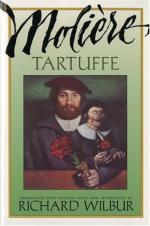|
This section contains 9,727 words (approx. 33 pages at 300 words per page) |

|
SOURCE: “Language for Money: the Patron and the Servant,” in Pistoles/Paroles: Money and Language in Seventeenth-Century French Comedy, Rookwood Press, 1996, pp. 151-70.
In this excerpt, Harrison argues that Molière's depiction of the relationship between artistic creation and patronage demonstrates his own status as a royal servant. The critic finds that the connections Molière draws between art and power work to support the authority of the king.
During his Parisian career, Molière was a servant of the king. He shared the obligation of all subjects to use his talents for the monarch, and as a comédien du roi, he provided the king with entertainment at court. Molière also worked for the king in his performances in the Paris theater, for here, too, he offered pleasure on Louis' behalf. In examining the ways in which Molière's comedies base their value on the authority...
|
This section contains 9,727 words (approx. 33 pages at 300 words per page) |

|


